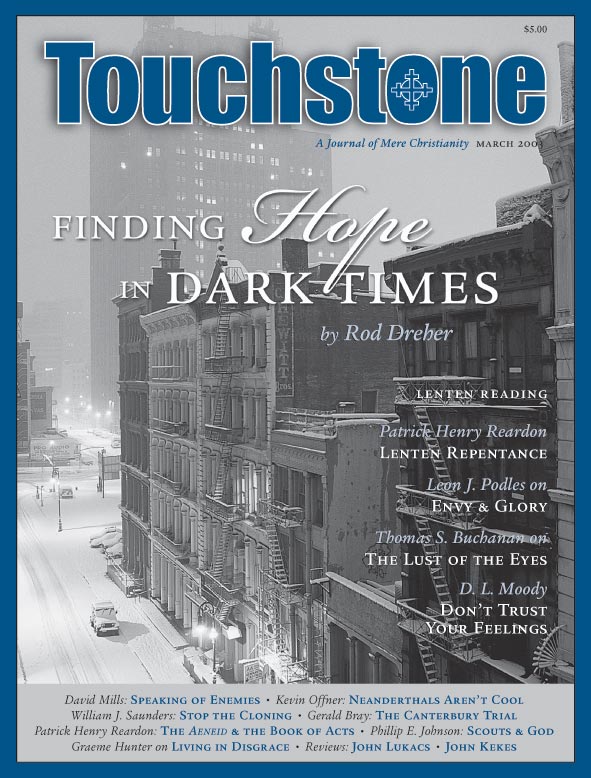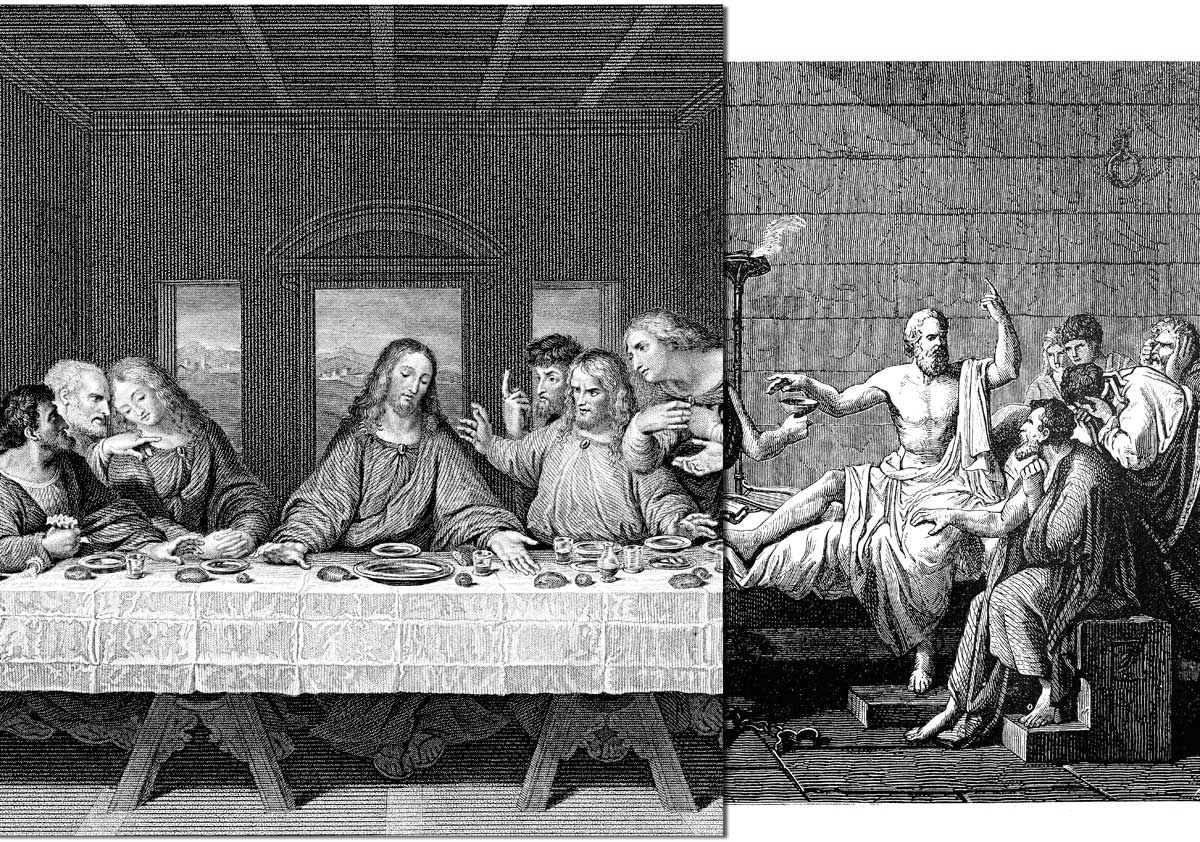Column: As It Is Written. . . .
Lenten Repentance
by Patrick Henry Reardon
In the New Testament, the verb metanoiein appears 34 times, almost always in the sense of repentance from sin and turning to the Lord. In ten of these cases, the verb is in the imperative or commanding mode, which is hardly surprising. However, a closer examination of these ten instances reveals certain aspects of repentance that are, if not surprising, at least instructive.
Before inspecting these ten instances of the imperative verb repent in the New Testament, however, a brief grammatical note will be helpful. The imperative mode in Greek is more complex than its counterpart in English. Unlike English, where the simple imperative has only one form, the Greek imperative verb can be expressed in three different tenses: (1) the aorist (“Do it!”); (2) the present (“Keep on doing it!”); and (3) the perfect (“Get it done!”). Whereas in Greek each of these imperatives is conveyed with a single word, in English we must complicate the sentence with additional words to carry over the sense of the original. Because translators of the New Testament do not always perform that service adequately, the precise sense of the text is sometimes lost.
With this grammatical preamble, we are ready to examine the ten New Testament instances of the command to repent. First, we observe that the imperative verb for repentance never appears in the perfect tense. That is to say, nowhere in the New Testament are we told, “Repent and get it over with!” or “Repent and be done with it!” This is important as suggesting that repentance is not something we bring to perfection in this world. Indeed, we may even say that a Christian’s death should itself be his climactic act of repentance. Moreover, the injunction that this be so is indicated in the Eastern Church’s traditional Great Litany, where we pray that “the remaining time of our life (ton hypoloipon chronon tes zoes hemon) may be brought to an end (ektelesai) in faith and repentance (en eirene kai metanoia).” Thus, the believer, when he comes to breathe his last, wants that last breath to embody a good thief’s plea for mercy and forgiveness, foreswearing all righteousness of his own: “Lord, remember me when you come in your kingdom.”
Second, we turn to the New Testament’s use of the aorist imperative of metanoiein. The force of this form indicates a specific act of decision (“Repent!”), rather than an attitude or habit. The New Testament provides seven instances of this form, three in the Acts of the Apostles and four in the Book of Revelation, and a comparison of the usage within those two books is most instructive. In two instances in the Book of Acts, the imperative to repent is directed to unbelieving Jews (2:38; 3:19). In the third example, however, the command is issued to Simon Magus (8:22), who was already a believing and baptized Christian (8:13). In other words, even a believing and baptized Christian can still be called to repentance and conversion when his “heart is not right in the sight of God” (8:21). Even as an act of decision, then, the grace of repentance is not necessarily a once-and-for-all sort of thing.
This truth is especially borne out in the Book of Revelation, where in all four instances the command “Repent!” is spoken to believers themselves, specifically the Christians in the churches at Ephesus, Pergamos, Sardis, and Laodicea (2:5,16; 3:3,19). When Christians start to think and act like unbelievers, they too must be summoned to repentance, and exactly the same form of the command covers both cases.
As a matter of fact, the theme of repentance appears more frequently in the Book of Revelation’s letters to the seven churches than anywhere else. Of the 34 times that the New Testament has the verb metanoiein, eight are found in chapters 2–3 of Revelation, all of them in reference to Christian believers. This is easily the highest concentration of the verb in the New Testament.
Finally, there are three instances of the command to repent in the present tense, meaning a disciplined habit and frame of mind (“Keep on repenting!”), and it is significant that all of these are found near the beginning of a gospel narrative (Matthew 3:2; 4:17; Mark 1:15). The four canonical forms of the Gospel were composed for and directed to Christian believers, who are already doing battle with their hearts within the life of the Church, the proper house of sustained and ongoing repentance.•
Patrick Henry Reardon is pastor emeritus of All Saints Antiochian Orthodox Church in Chicago, Illinois, and the author of numerous books, including, most recently, Out of Step with God: Orthodox Christian Reflections on the Book of Numbers (Ancient Faith Publishing, 2019).
subscription options
Order
Print/Online Subscription

Get six issues (one year) of Touchstone PLUS full online access including pdf downloads for only $39.95. That's only $3.34 per month!
Order
Online Only
Subscription

Get a one-year full-access subscription to the Touchstone online archives for only $19.95. That's only $1.66 per month!
bulk subscriptions
Order Touchstone subscriptions in bulk and save $10 per sub! Each subscription includes 6 issues of Touchstone plus full online access to touchstonemag.com—including archives, videos, and pdf downloads of recent issues for only $29.95 each! Great for churches or study groups.
Transactions will be processed on a secure server.
more on lent from the online archives
more from the online archives
calling all readers
Please Donate
"There are magazines worth reading but few worth saving . . . Touchstone is just such a magazine."
—Alice von Hildebrand
"Here we do not concede one square millimeter of territory to falsehood, folly, contemporary sentimentality, or fashion. We speak the truth, and let God be our judge. . . . Touchstone is the one committedly Christian conservative journal."
—Anthony Esolen, Touchstone senior editor









